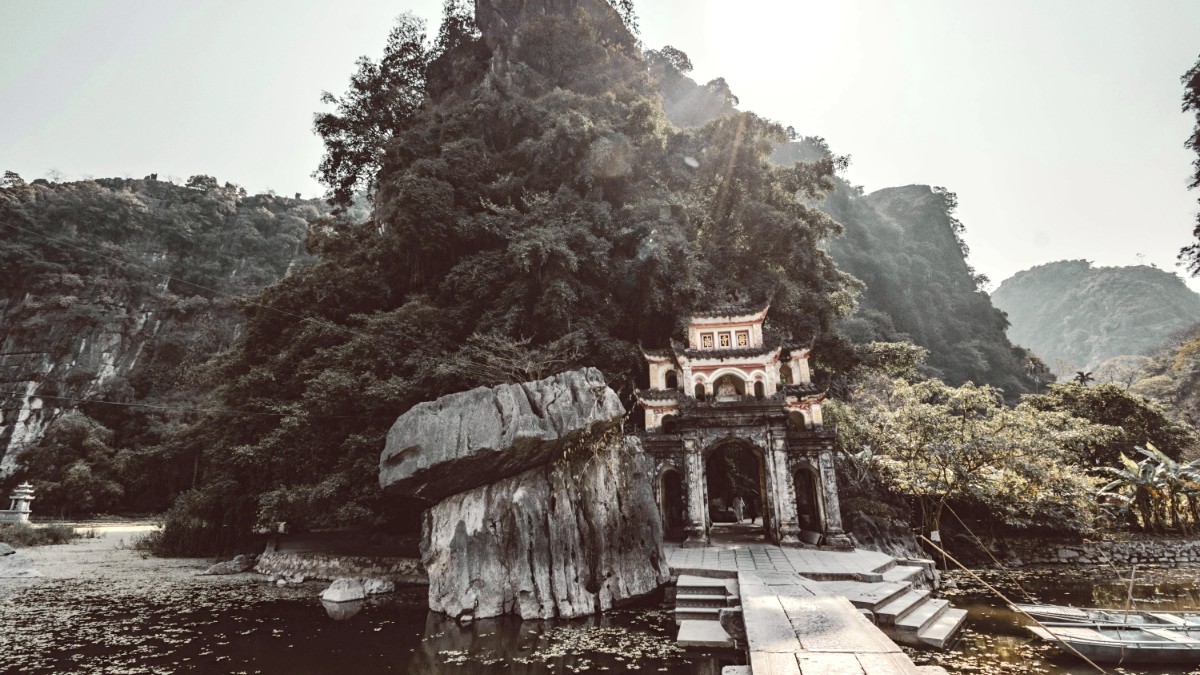
North Central Vietnam, Vietnam
Support protected areas like Trang An and Cuc Phuong National Park by following rules and avoiding litter. Minimize plastic use by carrying reusable items.
Dress modestly at religious sites, ask permission for photos, and learn basic Vietnamese phrases. Support local artisans and cultural preservation efforts.
Prioritize local businesses: homestays, family restaurants, and independent tour operators. This channels tourism income directly into the community.
Ninh Binh's natural landscapes are a major draw, with various initiatives supporting their preservation.
Trang An Scenic Landscape Complex (UNESCO World Heritage Site) follows strict conservation rules. Visitors follow marked paths, avoid litter, and respect local wildlife. Cuc Phuong National Park, Vietnam's oldest, focuses on biodiversity; visitors support efforts by visiting conservation centers. Van Long Wetland Nature Reserve protects its unique ecosystem and diverse birdlife.
Waste management continues as an ongoing challenge. Travelers can minimize their environmental footprint. Recycling infrastructure is limited outside of major cities.
Consider purchasing carbon offsets for flights to and from Vietnam via Terrapass. Within Ninh Binh, choose environmentally friendly transport like cycling, walking, or electric vehicles. Seek out tour operators specializing in eco-tourism, designed to minimize environmental impact, such as G Adventures.
Support efforts to preserve historical sites like Hoa Lu by adhering to visitor rules and contributing to entrance fees. Support traditional crafts by purchasing directly from local artisans. Respectful interaction enhances your visit. Dress modestly, especially when visiting religious sites, covering shoulders and knees. Ask permission before photographing people.
Travelers may choose activities that respect animals. Direct handouts to children are discouraged; supporting established, reputable local charities or educational initiatives is suggested for impactful contributions.
Carry a small bag for your trash. While waste bins are present, they are not always frequent, especially in rural areas.
Cultural preservation efforts are noticeable. Purchasing traditional crafts directly from local artisans supports their livelihood. Respectful interaction involves certain guidelines.
Dress modestly, especially when visiting religious sites. Cover your shoulders and knees. Always ask permission before taking photos of people, specifically children or those in traditional dress. Bargain politely and with a smile in markets. Showing effort to learn basic Vietnamese phrases, like "hello" and "thank you," is appreciated.
Dress modestly (shoulders and knees covered). Remove your shoes before entering. Do not touch statues or altars. Avoid turning your back to Buddha statues when sitting or standing near them. Maintain quiet and respectful behavior inside.
Your spending choices directly influence the local economy. Prioritize local restaurants, guesthouses, and independent tour operators over larger chains. This channels money within the local economy.
Staying at homestays, eating at family-run restaurants, and purchasing local crafts directly supports the community.
Seek goods from local artisans. Purchasing directly from producers means more money goes to the creators. Look for certified fair trade products.
If donating, do so through established, reputable local NGOs or organizations. Direct handouts to individuals are often discouraged.
Travelers may choose activities that respect animals, avoiding unregulated animal performances or rides showing animals in distress. Direct handouts to children are often discouraged; supporting reputable local charities or educational initiatives ensures contributions are effective.